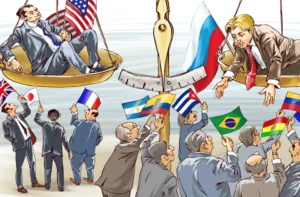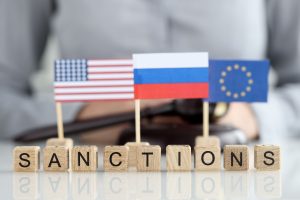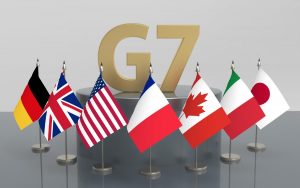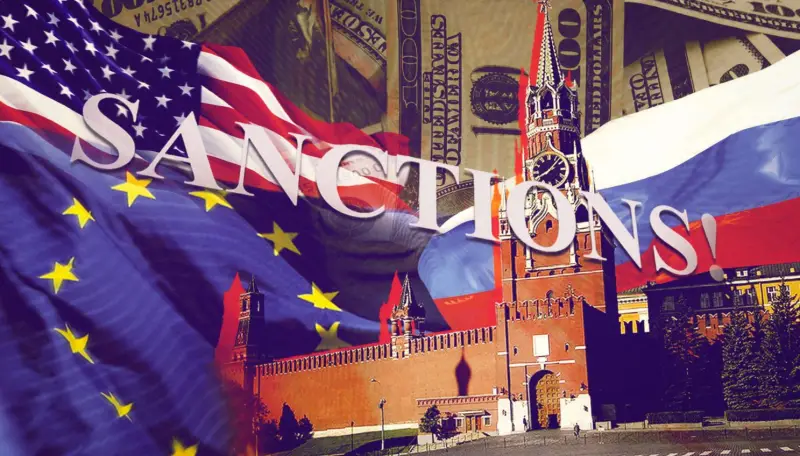Introduction to US Sanctions on Russia

US sanctions on Russia have been a significant tool in the American foreign policy arsenal, aimed at impacting economic stability within the Russian Federation. The primary objective of these sanctions is to exert pressure on the Russian government by targeting key industries and influential individuals within the country. By imposing these restrictions, the US seeks to cripple various facets of the Russian economy, creating a ripple effect that undermines the financial and operational capabilities of those in power. This strategy is designed to compel the Russian leadership to reconsider its actions on the global stage, particularly in areas where their activities are deemed aggressive or destabilizing.
Historical Context of US-Russia Relations
The imposition of US sanctions on Russia can be traced back to historical Cold War tensions that have long influenced the relationship between the two nations. These sanctions are not merely a response to recent events but are deeply rooted in a legacy of geopolitical rivalry and ideological opposition. During the Cold War, the US and the Soviet Union were locked in a protracted struggle for global supremacy, which has continued to shape their interactions even after the dissolution of the Soviet Union.
In recent years, US sanctions on Russia have escalated amid ongoing geopolitical conflicts, particularly in regions like Ukraine and Syria. These sanctions are a direct response to actions that the US views as violations of international norms and a threat to global stability. By tightening these economic restrictions, the US aims to curtail Russia’s ability to finance and support its military and strategic initiatives, thereby limiting its influence and reach.
Recent Developments in the Conflict

The recent developments in the conflict have seen US sanctions on Russia targeting key economic sectors, further intensifying the pressure on the Russian government. These sectors include energy, finance, and defense, which are crucial to the country’s economic and strategic interests. The objective is to weaken Russia’s economic foundation, making it increasingly difficult for the government to sustain its contentious activities.
As the conflict continues, US sanctions on Russia have intensified, reflecting the escalating tensions between the two nations. The US has introduced new rounds of sanctions, each more stringent than the last, in an effort to force Russia to alter its course of action. This ongoing escalation highlights the determination of the US to use economic leverage as a means of influencing Russian policy and behavior.
Specific Sanctions Imposed by the US
Among the specific sanctions imposed by the US, targeting key financial institutions has been a primary focus. By restricting access to international financial markets and limiting the ability of Russian banks to conduct transactions in US dollars, these sanctions aim to disrupt the financial operations of Russia’s major banks. This, in turn, affects the broader economy by creating liquidity challenges and increasing the cost of borrowing.
Another critical area of focus for US sanctions on Russia is the restriction of technology exports to the Russian military. By cutting off access to advanced technologies and components, the US aims to hinder the development and modernization of Russia’s military capabilities. This restriction not only affects the defense sector but also has broader implications for industries reliant on high-tech imports, thereby amplifying the economic impact.
Economic Impact on Russia
The economic impact of US sanctions on Russia has been profound, disrupting economic stability within the country. These sanctions have led to a decline in foreign investment, a devaluation of the Russian ruble, and increased inflation rates, all of which contribute to economic uncertainty. The overall effect is a contraction in economic growth, making it more challenging for the Russian government to achieve its economic objectives.
US sanctions on Russia have also had a significant impact on various Russian industries and financial sectors. The energy sector, in particular, has been hard hit, with restrictions on technology and investment affecting oil and gas production. Additionally, the financial sector has faced increased operational difficulties due to the sanctions, leading to a tightening of credit and a reduction in lending activities. These combined effects have created a challenging economic environment for businesses and consumers alike.
International Reactions to US Sanctions

The escalation of US sanctions on Russia has elicited a range of international reactions, with global criticism growing as the sanctions intensify. Many countries view these sanctions as a unilateral approach that can have unintended consequences on the global economy. There is concern that the sanctions could lead to increased volatility in international markets and disrupt global trade.
European allies, in particular, have expressed concern over the impact of US sanctions on Russia. Given their geographical proximity and economic ties to Russia, European nations are wary of the potential fallout from these sanctions. They fear that the economic instability in Russia could spill over into their markets, affecting trade, energy supplies, and overall economic stability in the region.
Future Implications of Escalating Sanctions
The future implications of escalating US sanctions on Russia are multifaceted, with potential economic impacts on global markets being a significant concern. The interconnected nature of the global economy means that disruptions in Russia can have far-reaching effects, influencing everything from energy prices to financial market stability. As the sanctions continue to escalate, the risk of broader economic repercussions increases.
There is also the potential for retaliatory measures against US sanctions on Russia. In response to the economic pressure, Russia may seek to implement countermeasures that could affect US interests and those of its allies. This tit-for-tat dynamic could lead to an escalation of tensions, further complicating international relations and creating additional economic uncertainty. The ongoing cycle of sanctions and counter-sanctions underscores the complexity of the geopolitical landscape and the challenges of achieving long-term stability.




